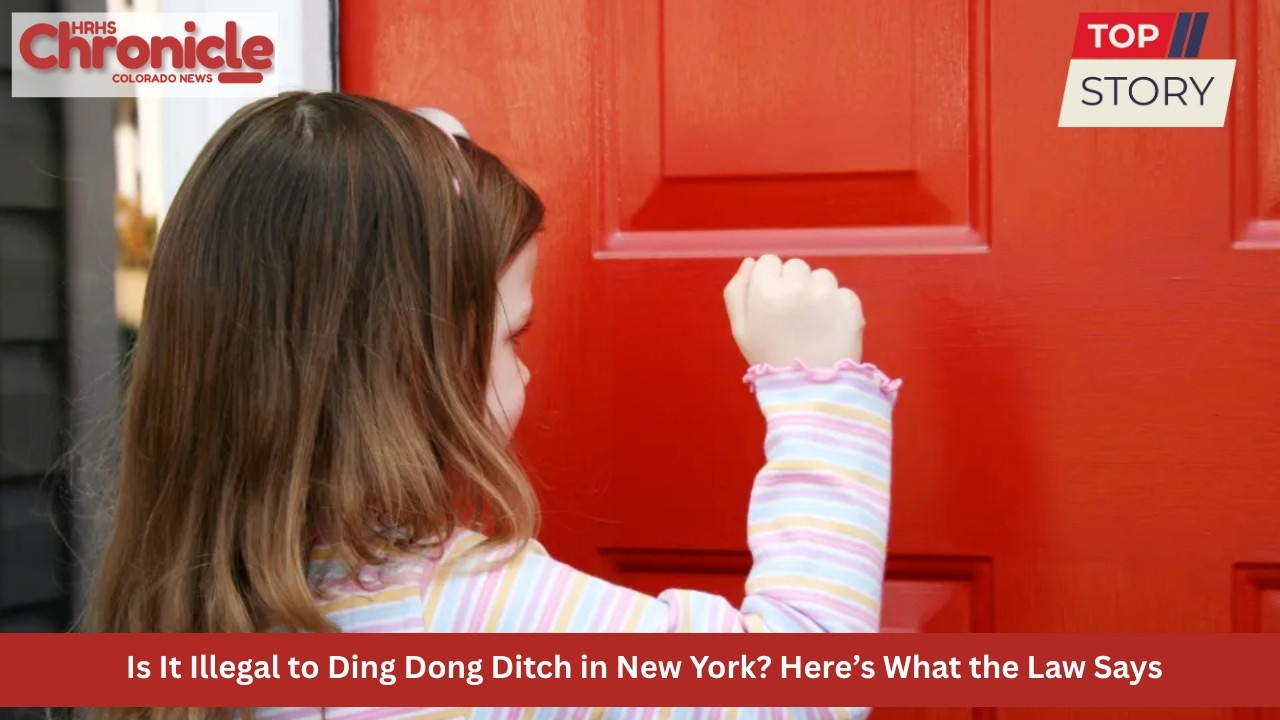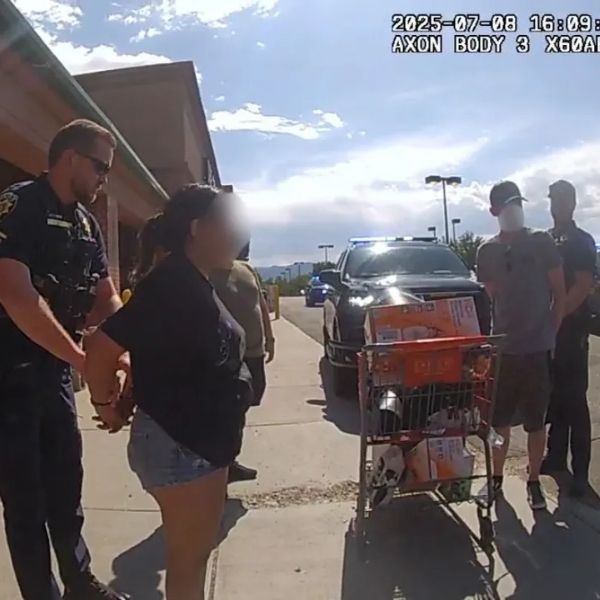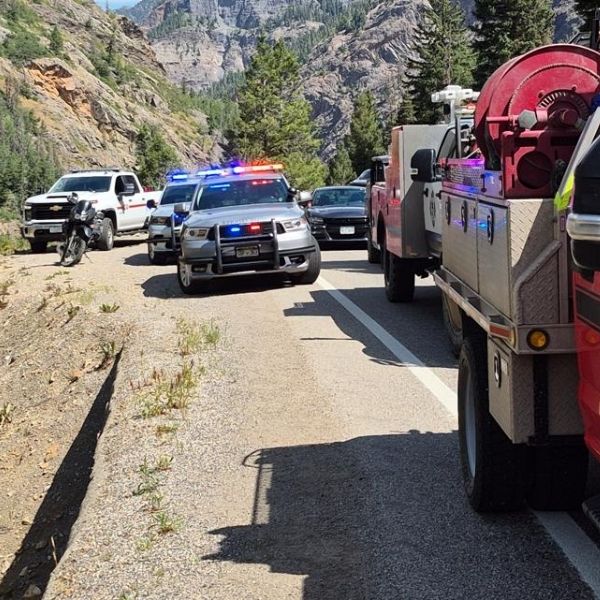Ding dong ditch, sometimes called “knock, knock, run,” is the age-old prank involving ringing someone’s doorbell or knocking, then running away before the resident answers. While often seen as harmless mischief, especially among kids and teens, this prank has increasingly come under scrutiny as cities like New York tighten their approach to nuisance behavior and residential security. With technology like Ring doorbells now widespread from Brooklyn to Buffalo, and homeowners more protective of their space, the legal risks tied to ding dong ditching have become clearer and more serious.
Legal Status of Ding Dong Ditch in New York
New York does not have a specific law titled “ding dong ditch.” However, state and city laws cover a variety of actions that may render the prank illegal under certain circumstances. The two most relevant statutes are those dealing with trespassing and disorderly conduct.
Trespassing Laws in New York
Entering another person’s property, including a front yard, porch, or stoop in places like Manhattan, Queens, or Albany, without permission can qualify as trespassing. While Manhattanites are used to foot traffic, city law still expects visitors to have a legitimate reason to be on private property. The moment someone steps onto a stoop purely to ring a bell and flee, they risk violating criminal trespass statutes even if they do not enter the home itself. New York Penal Law defines trespass as knowingly entering or remaining unlawfully in or upon premises. If the homeowner has previously told the person not to return, or if there’s a visible “No Trespassing” sign, the case becomes even stronger.
Disorderly Conduct and Disturbance of the Peace
Turning to city codes, New York law prohibits behavior that disturbs the public order. Under Penal Law Section 240.20, disorderly conduct can include any action that “annoys, alarms, or causes inconvenience to others.” Practically, if someone rings a doorbell repeatedly or at odd hours, causing distress in neighborhoods from Staten Island to Rochester, they can be charged with disorderly conduct. The city’s focus on “quality of life” offenses makes even seemingly minor pranks targets of police attention.
How Ding Dong Ditch Can Lead to Legal Trouble
It’s rare that a single, isolated prank results in an arrest in cities like Syracuse or Yonkers. Most first-time offenders — especially minors — will find that police prefer a warning. However, repeated behavior, complaints from neighbors, late-night incidents, or any resulting physical altercations quickly escalate the matter.
If ding dong ditching is part of a continuous pattern — for example, multiple nights of disturbances in New Rochelle or repeated targeting of one home in Long Island — the prankster could see misdemeanor charges or even a juvenile court appearance. And if the homeowner, as sometimes happens, gives chase and an accident occurs, the legal consequences can multiply, possibly involving liability for injuries or property damage.
In 2023 on Long Island, local police responded to repeated complaints about suspicious doorbell activity. Homeowners, frustrated after months of nightly disruptions, installed cameras and provided video evidence. Police visited the homes of the suspected pranksters, explained the legal risks to the parents, and some families received official warnings recorded on police reports.
Penalties and Real-World Consequences
If you’re caught ding dong ditching in New York, several outcomes are possible:
-
Police Warning: Most common for minors or first-time incidents.
-
Juvenile Court: Repeated offenses can result in court-ordered counseling or community service for minors.
-
Misdemeanor Charges: Persistence or additional aggravating factors, like harassment or property damage, can lead to criminal charges with potential penalties including fines (which can be several hundred dollars) or a short stint in jail for adults.
-
Civil Liability: If the prank results in injury or clear financial harm, the homeowner may be entitled to damages.
-
School Discipline: In city suburbs like White Plains, police involvement over such pranks is often reported to schools, which may hand down their own consequences.
High-Profile Cases and City-Specific Examples
In larger cities like New York City itself, reports of ding dong ditching range from single incidents in apartment complexes in the Bronx to coordinated pranks in suburban areas like Westchester. Residents often post on neighborhood message boards or apps like Nextdoor, seeking advice or expressing frustration when their streets experience a rash of prank rings or knocks. In Manhattan’s Upper West Side or in Astoria, residents take the prank seriously, especially when it disturbs elderly residents or young families.
One illustrative example occurred in Brooklyn: a family suffering repeated pranks used a video doorbell to capture the suspects. With evidence, NYPD followed up with calls to parents and a warning about possible legal charges for trespassing and harassment if the behavior continued.
How New York Compares With Other States
New York’s approach is similar to many states, where ding dong ditch can be grounds for citations under trespassing, harassment, or disorderly conduct statutes. In California, for example, it’s treated as a misdemeanor disturbance. In places like Texas or New Jersey, specific statutes for trespass or harassment apply, but New York’s general codes are broad enough to allow prosecution depending on circumstances.
Are There Any Exceptions?
There are cases in cities like Buffalo where homeowners are more tolerant, seeing the prank as a rite of passage. However, the consensus from law enforcement and local officials is that the times have changed — with more vigilant neighborhoods, advanced home security, and a greater emphasis on confronting nuisance behaviors promptly.
If someone is invited onto the property, or if the incident occurs at a reasonable hour and does not result in annoyance or fear, the likelihood of law enforcement action is lower. But as seen in Albany or Queens, a single prank can become serious if the resident feels threatened or files a repeat complaint.
Psychological and Social Risks
Beyond legal penalties, it’s important to realize the social and psychological risks. In cities like Rochester, officers report that ding dong ditch sometimes triggers panic, especially in neighborhoods already sensitive to crime. Older residents may feel unsafe, and pranksters may be caught on camera and posted online, causing embarrassment and harming future opportunities.
In an era when community watch and neighborhood apps facilitate quick sharing of information, pranksters may find their reputation — and even academic or work prospects — affected.
What Parents and Teens Should Know
If you’re a parent living in New York — whether in the suburbs of Nassau County, the streets of Harlem, or the quiet neighborhoods of Yonkers — it’s crucial to educate children on the risks. What once seemed like harmless fun now carries a heightened risk of legal consequences and neighborhood scrutiny. Many parents handle first incidents directly, but repeated complaints sometimes force calls to law enforcement.
Tips for Preventing Incidents
-
Educate kids and teens about boundaries and respect for neighbors’ property.
-
Explain that jokes or pranks aren’t always received as harmless, especially late at night or when repeated.
-
Encourage safer, legal forms of fun that don’t involve invading others’ space.
-
Use neighborhood programs and communication channels to discourage the prank and build positive interactions.
-
Consider security devices — as cameras both help prevent recurrence and provide evidence.
What To Do If You’re a Victim
If you are on the receiving end of ding dong ditching in New York:
-
Remain calm and avoid confrontations.
-
Install or upgrade doorbell cameras in areas like Staten Island or Brooklyn where incidents spike.
-
File a police report if the prank recurs; repeated documentation helps law enforcement respond appropriately.
-
Speak with neighbors to determine if others have experienced the same disruptions.
Conclusion: The Final Word on Ding Dong Ditch and New York Law
While New York does not have a law explicitly titled “ding dong ditch,” several city and state statutes mean the prank can lead to real trouble. Charges related to trespassing, disorderly conduct, or harassment can be applied if ding dong ditching causes significant annoyance, fear, or repeats after warnings. Residents of New York City, Buffalo, Rochester, and communities in between are advised to treat the subject seriously and handle issues through communication and — if needed — official channels.
In a New York urban landscape defined by dense populations and vigilant neighbors, even simple pranks can escalate. As a result, the safest path for children, teens, and even adults is to err on the side of caution and leave ding dong ditch in the past, where it belongs.
Ref Source
- https://www.youtube.com/watch?v=S4ksT6lvfGc
- https://www.reddit.com/r/homeowners/comments/1edgscm/almost_5_years_of_ding_dong_ditch_banging_on/

Mrs. Odice has been a teacher here for 9 years. She likes yoga and spends most of her time with her 3 kids. She also grew up going to Douglas County schools and is Canadian.















Leave a Reply